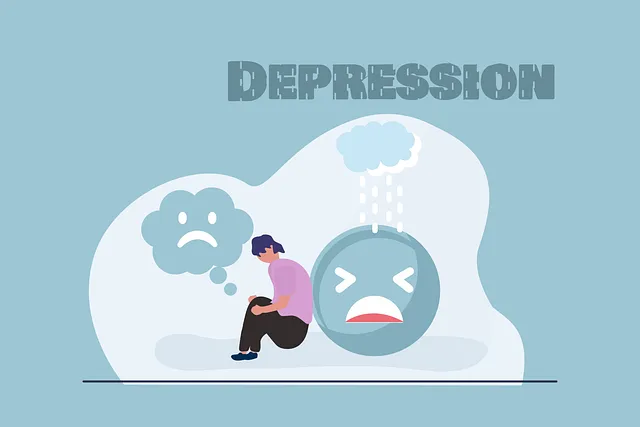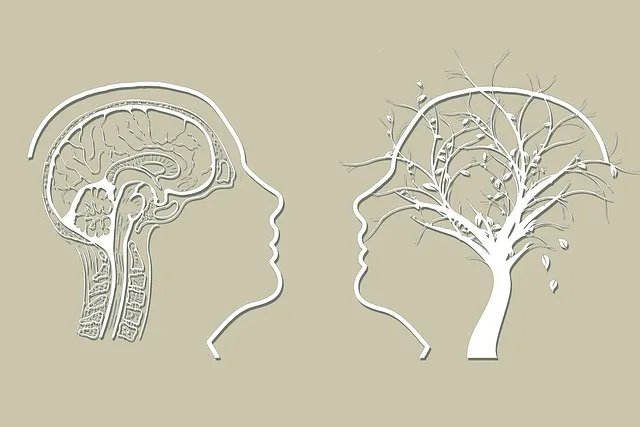Kaiser Permanente Mental Health Center Arvada promotes positive thinking as a powerful tool for mental well-being. Through cognitive reframing, self-awareness exercises, and personalized routines, individuals challenge negative thoughts, build resilience, and reduce stress. Mindfulness and gratitude practices, integrated into daily life, enhance emotional stability and optimism. Journaling and tracking progress help participants quantify improvements and maintain momentum in their positive thinking journeys.
Positive thinking exercises have emerged as powerful tools for enhancing mental well-being, supported by organizations like Kaiser Permanente mental health centers in Arvada. This article delves into the science behind positive thinking and offers practical strategies. We explore how Kaiser Permanente Arvada promotes cognitive reframing, providing insights into effective techniques. Learn to develop a personalized routine integrating mindfulness and gratitude for improved mental health. Discover methods to track progress and celebrate success as you transform your life with positive thinking.
- Understanding Positive Thinking: A Foundation for Mental Well-being
- The Role of Kaiser Permanente Arvada in Promoting Cognitive Reframing
- Developing a Personalized Thinking Exercise Routine
- Integrating Mindfulness and Gratitude into Daily Life
- Tracking Progress and Celebrating Success: Measuring the Impact of Positive Thinking
Understanding Positive Thinking: A Foundation for Mental Well-being

Positive thinking is a powerful tool that forms the foundation of mental well-being, as advocated by organizations like Kaiser Permanente Mental Health Center Arvada. It’s not merely about being optimistic; it’s a practice that involves actively challenging negative thoughts and replacing them with more positive and realistic ones. This shift in perspective can significantly impact one’s overall outlook on life, leading to improved emotional resilience and coping mechanisms.
By engaging in self-awareness exercises, individuals can learn to recognize and challenge unhelpful thought patterns. This process, often a key component of Depression Prevention strategies, empowers people to take control of their mental health. Moreover, fostering positive thinking contributes to Mental Illness Stigma Reduction Efforts by promoting understanding, empathy, and supportive communities where individuals feel comfortable seeking help without fear of judgment.
The Role of Kaiser Permanente Arvada in Promoting Cognitive Reframing

Kaiser Permanente Arvada stands as a beacon for mental health awareness and well-being, offering its community innovative approaches to cognitive reframing. As a leading Kaiser Permanente mental health center, they prioritize empowering individuals to cultivate healthier thinking patterns. Through various programs and initiatives, the center provides practical tools and techniques that help navigate life’s challenges with resilience and positivity.
The expertise lies in guiding patients through evidence-based practices such as self-esteem improvement, communication strategies, and compassion cultivation. These techniques enable individuals to challenge negative thought cycles, fostering a more optimistic outlook. By integrating these cognitive reframing methods into their care, Kaiser Permanente Arvada ensures that patients gain the mental agility to transform their lives, ultimately enhancing overall well-being.
Developing a Personalized Thinking Exercise Routine

Developing a personalized thinking exercise routine is a powerful step towards enhancing mental well-being, as advocated by experts at the Kaiser Permanente Mental Health Center in Arvada. This process begins with identifying specific areas where one seeks improvement, whether it’s managing stress, reducing anxiety, or cultivating compassion. Once these goals are defined, individuals can tailor exercises that resonate with their unique needs and preferences. For instance, some might find solace in mindfulness meditation practices for anxiety relief, while others may prefer journaling as a means of self-reflection and burnout prevention.
The key to an effective routine lies in consistency and variety. Incorporating different Compassion Cultivation Practices alongside established techniques like deep breathing exercises or cognitive reframing can enrich the experience. By dedicating even just a few minutes each day to these personalized thinking exercises, individuals can foster positive mental shifts, leading to improved overall well-being.
Integrating Mindfulness and Gratitude into Daily Life

Integrating mindfulness and gratitude practices into daily routines is a powerful strategy for enhancing emotional well-being, as advocated by experts at the Kaiser Permanente mental health center in Arvada. These simple yet profound techniques have been shown to significantly improve mental health outcomes, according to numerous studies. Mindfulness encourages individuals to focus on the present moment, observing thoughts and feelings without judgment, thereby reducing stress and anxiety.
Practicing gratitude involves acknowledging and appreciating the positive aspects of life, fostering a sense of contentment and optimism. Incorporating moments of mindfulness and gratitude can be as simple as taking a few deep breaths, noticing one’s surroundings, and reflecting on things one is thankful for each day. These practices are confidence-boosting tools that promote emotional well-being promotion techniques, helping individuals navigate life’s challenges with greater resilience and a positive mindset.
Tracking Progress and Celebrating Success: Measuring the Impact of Positive Thinking

Tracking progress is a vital step in any transformation journey, and positive thinking exercises are no exception. Participants at the Kaiser Permanente mental health center Arvada can leverage simple yet effective methods like daily journaling to record their thoughts, emotions, and achievements related to their positive thinking practice. By regularly reviewing these records, individuals gain valuable insights into their progress and identify areas that require further attention. Celebrating small wins along the way is an essential part of building momentum and cultivating a sense of inner strength development.
Additionally, participating in Stress Reduction Methods and attending Stress Management Workshops offered by the Organization can provide structured avenues to measure the impact of positive thinking exercises. These structured programs often incorporate assessments before and after the intervention, allowing individuals to quantify their improvements in stress levels, overall well-being, and resilience. Such measurable outcomes not only motivate participants but also serve as a testament to the power of consistent positive thinking practices.
The implementation of positive thinking exercises, as demonstrated by Kaiser Permanente Mental Health Center in Arvada, offers a powerful tool for enhancing well-being. By combining cognitive reframing with practices like mindfulness and gratitude, individuals can cultivate a more optimistic outlook. This article has provided a comprehensive guide to help readers create their own personalized routines, track progress, and celebrate the transformative impact of positive thinking on their lives. Embrace these strategies to unlock your potential for happiness and resilience, just as Kaiser Permanente Arvada does in its commitment to community well-being.






